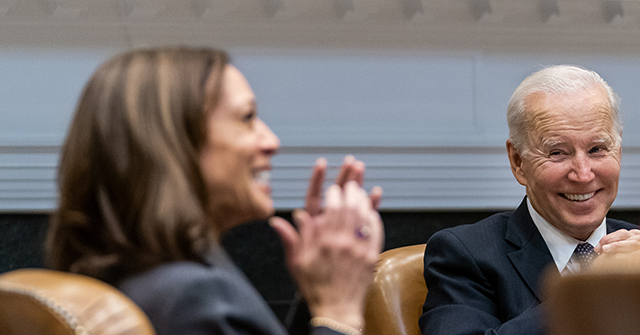In a recent statement that stirred considerable controversy, President Joe Biden suggested during an event in New Hampshire that his political rival, former President Donald Trump, should be “locked up.” This declaration, which reflects growing frustration within the Biden administration regarding Trump’s legal and political standing, highlights an aggressive campaigning strategy aimed at undermining Trump ahead of the upcoming elections. However, Biden quickly clarified his remarks, asserting they were intended to convey a political message rather than a literal call for incarceration. He emphasized the necessity of “locking him out” politically, indicating a shift from a confrontational tone to a more strategic approach focused on electoral competition.
Amid this unfolding situation, a former Biden administration official voiced doubt over Biden’s effectiveness in shaping political discourse. The official characterized Biden’s influence as diminishing, suggesting that his recent remarks would have little lasting impact and would quickly fade from public attention. This sentiment underscores a broader concern within the Democratic Party about Biden’s ability to resonate with voters and drive momentum for his agenda, particularly in light of the attention the campaign is garnering from Trump’s supporters and a backdrop of ongoing legal challenges facing the former president.
Vice President Kamala Harris, who is integral to the Biden campaign, has yet to publicly respond to the controversial statements made by Biden. This silence raises questions about her role and visibility in the administration’s strategic approach, especially as the campaign seeks to portray itself as a champion of democratic values against what they view as authoritarian tendencies from Trump. Critics, including Trump campaign spokesperson Karoline Leavitt, argue that Biden’s comments reveal an underlying strategy to politically persecute their opponent, framing the Harris-Biden administration as a significant threat to democratic principles.
The implications of Biden’s remarks extend beyond immediate political strategy; they touch upon the broader narrative established by both Biden and former President Barack Obama concerning the responsibility and seriousness of presidential rhetoric. Obama recently underscored the impact of a president’s words, suggesting that Trump’s rhetoric poses a tangible danger to democracy. This framing of political dialogue serves as a juxtaposition to Biden’s controversial comments, complicating the Democrats’ messaging as they navigate turbulent political waters ahead of the elections.
As discussions around Biden’s statement continue, it is clear that the Biden-Harris campaign will need to carefully balance aggressive political appeals with a commitment to democratic norms. The tension between launching direct attacks on Trump and maintaining a high ground about political integrity is a delicate line that the campaign must tread. Trump’s supporters are keen to amplify any perceived inconsistencies or indications of a lack of integrity from the Biden administration, which will require a coordinated and thoughtful response from the vice president and her team.
Ultimately, Biden’s remarks and the ensuing reactions illustrate the fraught dynamics of contemporary American politics, where rhetoric and public perception shift rapidly. The administration’s capacity to shape the narrative moving forward will hinge on both how they address these controversies and their ability to effectively mobilize their base while presenting a compelling alternative to the Trump narrative. As the electoral landscape continues to evolve, the significance of Biden’s comments, and their implications for the Harris-Biden campaign strategy, will remain a pivotal area of focus for both supporters and critics alike.

